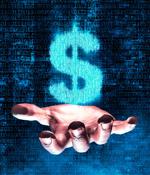Security News

Google Cloud's AML AI represents an advancement in the fight against money laundering. In this Help Net Security interview, Anna Knizhnik, Director, Product Management, Cloud AI, Financial Services, at Google Cloud, explains how Google Cloud's AML AI outperforms current systems, lowers operational costs, enhances governance, and improves the customer experience by reducing false positives and minimizing compliance verification checks.

Pro-Kremlin groups Anonymous Sudan, Killnet and Clop have other motivations than just hacktivism as they widen their attack field beyond political targets. The June 19 attack against the European Investment Bank may have been a salvo aimed at thwarting financial pipelines supporting Ukraine's war effort, although the motives of the threat groups are still subject to speculation, experts say.

Uncle Sam announced its commenced over 4,000 legal actions in three months - mostly harshly worded letters - to rein in "Money mules" involved in romance scams, business email compromise, and other fraudulent schemes. Money mules are the individuals who provide money transfer services - occasionally unwittingly - to launder robbery funds.

That model mirrors those of other RaaS groups and illustrates why slowing the ransomware scourge is so hard - affiliates who help to spread the evil code make lots of money. According to Group-IB's report, Qilin affiliates - those who pay to use Qilin's ransomware for their own attacks - can take home 80 percent of the ransom paid.

Digital fraud has significant financial and psychological repercussions on victims, according to Telesign. Businesses may find a new reason to fear digital fraud as the negative impacts of digital fraud on companies' brand perception and the bottom line.

As QR codes continue to be heavily used by legitimate organizations-from Super Bowl advertisements to enforcing parking fees and fines, scammers have crept in to abuse the very technology for their nefarious purposes. A woman in Singapore reportedly lost $20,000 after using a QR code to fill out a "Survey" at a bubble tea shop, whereas cases of fake car parking citations with QR codes targeting drivers have been observed in the U.S. and the U.K. Striking while you're asleep.

Money mules, individuals whose bank accounts are used by fraudsters to transfer money, are becoming an increasingly prominent aspect of cybercriminals' economic business models too. In the US particularly, fraudsters are targeting unwitting consumers to become money mules.

Taiwanese PC parts maker MSI has been listed on the extortion portal of a new ransomware gang known as "Money Message," which claims to have stolen source code from the company's network.MSI is a global hardware giant that makes motherboards, graphics cards, desktops, laptops, servers, industrial systems, PC peripherals, and infotainment products, with an annual revenue that surpasses $6.5 billion.

A new ransomware gang named 'Money Message' has appeared, targeting victims worldwide and demanding million-dollar ransoms not to leak data and release a decryptor. While investigating, BleepingComputer has seen evidence of a potential Money Message breach on a well-known computer hardware vendor.

According to various researchers and security firms, threat actors are already out hunting for SVB-exposed prey through both passive and active phishing scams, including similar fake domains and business email compromise attacks. Dean of Research at SANS Technology Institute, Johannes Ullrich clocked a rapid increase in the number of domain registrations containing the word "SVB" since the March 10th collapse.